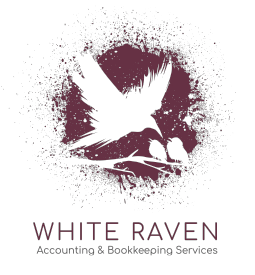As a small business owner, keeping your books in order is crucial for the success of your company. Accurate and organized bookkeeping can help you track your finances, make informed business decisions, and comply with tax laws. In this blog, we will share five bookkeeping tips for keeping your business’s books in order. At White Raven Accounting & Bookkeeping, we understand the importance of effective bookkeeping and offer comprehensive bookkeeping services in Calgary, AB. If you’re in need of professional bookkeeping assistance, don’t hesitate to contact us.
Tip #1: Use a consistent method for recording financial transactions
Consistency is key when it comes to bookkeeping. Using a consistent method for recording financial transactions helps to ensure that your books are organized and accurate. There are two main methods of bookkeeping: double-entry bookkeeping and single-entry bookkeeping.
In double-entry bookkeeping, every financial transaction is recorded in two different accounts – one as a debit and one as a credit. This method is more complex, but it provides a higher level of accuracy and allows for better reconciliation of accounts.
Single-entry bookkeeping is a simpler method in which each financial transaction is recorded only once. This method is suitable for small businesses with fewer transactions.
When choosing a bookkeeping method for your business, consider the size and complexity of your company, as well as your personal preferences and resources. If you’re not sure which way is best for you, consider seeking the advice of a professional bookkeeping service in Calgary, such as White Raven Accounting & Bookkeeping.
Tip #2: Stay up-to-date with your bookkeeping
Falling behind on your bookkeeping can lead to a host of problems, including lost receipts, misclassified transactions, and errors in financial reporting. To avoid these issues, it’s important to stay up-to-date with your bookkeeping tasks.
One way to ensure that you stay on top of your bookkeeping is to set aside dedicated time each week to work on it. This could be a few hours on a specific day or several hours spread out over the week. It’s important to be consistent with this dedicated time to ensure that your bookkeeping stays up-to-date.
Another option is to use bookkeeping software, which can help automate many of the tasks involved in keeping your books in order. There are several different software options available, so be sure to do your research and choose one that meets the needs of your business.
Tip #3: Keep accurate records of all financial transactions
Accurate record-keeping is essential for effective bookkeeping. Inaccurate records can lead to errors in financial reporting and decision-making, which can have serious consequences for your business. To ensure that your records are accurate, it’s important to double-check all calculations and reconcile your accounts regularly.
Reconciling your accounts involves comparing your recorded transactions to your bank and credit card statements to ensure they match. This process helps to catch any errors or discrepancies and allows you to make necessary corrections.
Tip #4: Use a budget to track and manage your finances
A budget is a financial plan that outlines your expected income and expenses for a specific period of time. Creating a budget for your business can help you track your financial performance, identify areas for improvement, and make informed decisions about how to allocate your resources.
To create a budget for your business, start by setting financial goals for the year. Next, track your income and expenses to get a clear picture of your financial situation. Finally, use this information to create a budget that aligns with your financial needs.
Tip #5: Consider outsourcing your bookkeeping
Outsourcing your bookkeeping tasks can provide a number of benefits for your business. One of the primary advantages is cost savings. Hiring a full-time bookkeeper can be expensive, especially for small businesses. By outsourcing your bookkeeping, you can access professional services at a lower cost.
Another benefit of outsourcing is access to expertise. A professional bookkeeping service will have experienced and knowledgeable staff who can handle a variety of bookkeeping tasks efficiently and accurately. This can be especially beneficial for businesses that do not have in-house bookkeeping expertise.
If you’re considering outsourcing your bookkeeping, it’s important to find a reputable service. Look for a company with a proven track record and positive customer reviews. You should also consider the specific services that the company offers and whether they align with the needs of your business.
Conclusion
In conclusion, keeping your business’s books in order is essential for the success of your company. By following these five bookkeeping tips, you can improve your bookkeeping practices and better manage your finances. These tips include using a consistent method for recording financial transactions, staying up-to-date with your bookkeeping, keeping accurate records, using a budget to track and manage your finances, and considering outsourcing your bookkeeping.
We hope that these bookkeeping tips have been helpful. At White Raven Accounting & Bookkeeping, we are dedicated to helping small businesses in Calgary, AB with all of their bookkeeping needs. If you’re in need of professional bookkeeping assistance, don’t hesitate to contact us. Thank you for reading and we invite you to leave comments or ask questions.








